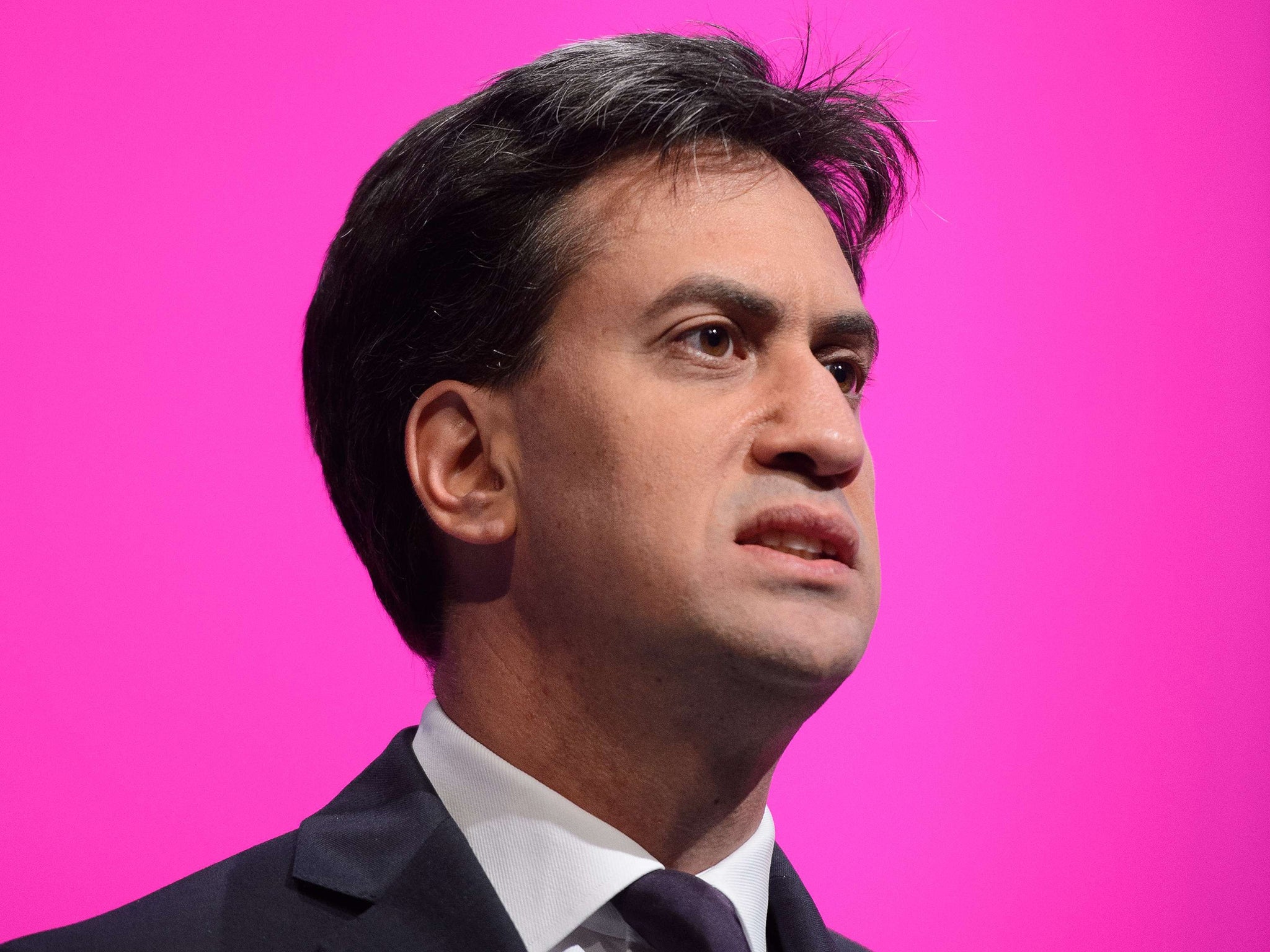Ed Miliband under pressure over PM's 'English votes for English laws' devolution reforms
Debate heats up as watchdog calls in police over claims about No camp’s postal votes access

Your support helps us to tell the story
From reproductive rights to climate change to Big Tech, The Independent is on the ground when the story is developing. Whether it's investigating the financials of Elon Musk's pro-Trump PAC or producing our latest documentary, 'The A Word', which shines a light on the American women fighting for reproductive rights, we know how important it is to parse out the facts from the messaging.
At such a critical moment in US history, we need reporters on the ground. Your donation allows us to keep sending journalists to speak to both sides of the story.
The Independent is trusted by Americans across the entire political spectrum. And unlike many other quality news outlets, we choose not to lock Americans out of our reporting and analysis with paywalls. We believe quality journalism should be available to everyone, paid for by those who can afford it.
Your support makes all the difference.The Conservatives intend to put “English votes for English laws” at the heart of their election manifesto unless Labour agrees to a radical reform of how the House of Commons operates, David Cameron has warned.
In an acknowledgement that his statement after the Scottish referendum result was as much about wooing voters in England as it was about reassuring voters in Scotland, the Prime Minister said that unless Ed Miliband agreed to his plan to exclude Scottish MP voting on all devolved powers he would make the issue central at the next election.
Tory strategists believe the plan is a vote winner in English marginal seats. But Labour would struggle to sign up to it, as it has 41 Scottish MPs, and could find it hard to pass legislation on issues like the NHS and education without their support in Parliament – if they win power with a narrow majority.
Speaking before his return from the United States, Mr Cameron made it clear that he believed the issue was one that did not necessarily need to be decided with cross-party consensus.
“I think Labour are making a great mistake in not understanding that if you move to a situation where Scottish MPs are able to vote on even more issues, including – potentially – tax rates, spending, welfare issues, as I said, the English question needs to be answered and you need to have English votes for English laws,” he said.
“At the next election, if Labour doesn’t agree English votes for English laws, there will be a very clear choice. If you vote Conservative, you’ll get both – more Scottish devolution and an answer to the English question.
“That will be our offer. It’s up to others to say what they want to do, but be in no doubt, I absolutely keep my promises to the Scottish people about further powers.”
So far Labour have only offered a constitutional convention after the next election to discuss devolution in its entirety. Meanwhile, in Scotland, police are assessing allegations that agents for the pro-union campaign breached election law by “taking tallies” of postal ballots in the weeks before the Scottish independence referendum poll.
A complaint was made to the Electoral Commission following comments made by Scottish Conservative leader Ruth Davidson after the polls closed last Thursday.
Speaking to the BBC, she said Better Together campaigners were “incredibly encouraged” by what they had seen at sample postal ballot openings.
Ms Davidson said: “We’ve had people at every sample opening around the country over the last few weeks while that’s been coming in. We’ve been incredibly encouraged by the results from that.”
She added: “There’s people in the room that have been sampling those ballot boxes as they’ve been opened, and they’ve been taking tallies and their reports have been very positive for us.”
Postal ballot openings are held to verify that the ballots are genuine and that the signature and date of birth given along with the ballots match official records.
The Scottish Independence Referendum Act 2013 states that ballots must be kept face down during the process and precautions must be taken to prevent anyone from seeing the votes made.
A spokeswoman for the Electoral Commission confirmed that it had received a complaint. The body has no remit to investigate breaches of electoral law and police were subsequently made aware.
A spokesman for Police Scotland said complaints were being assessed.
Join our commenting forum
Join thought-provoking conversations, follow other Independent readers and see their replies
Comments